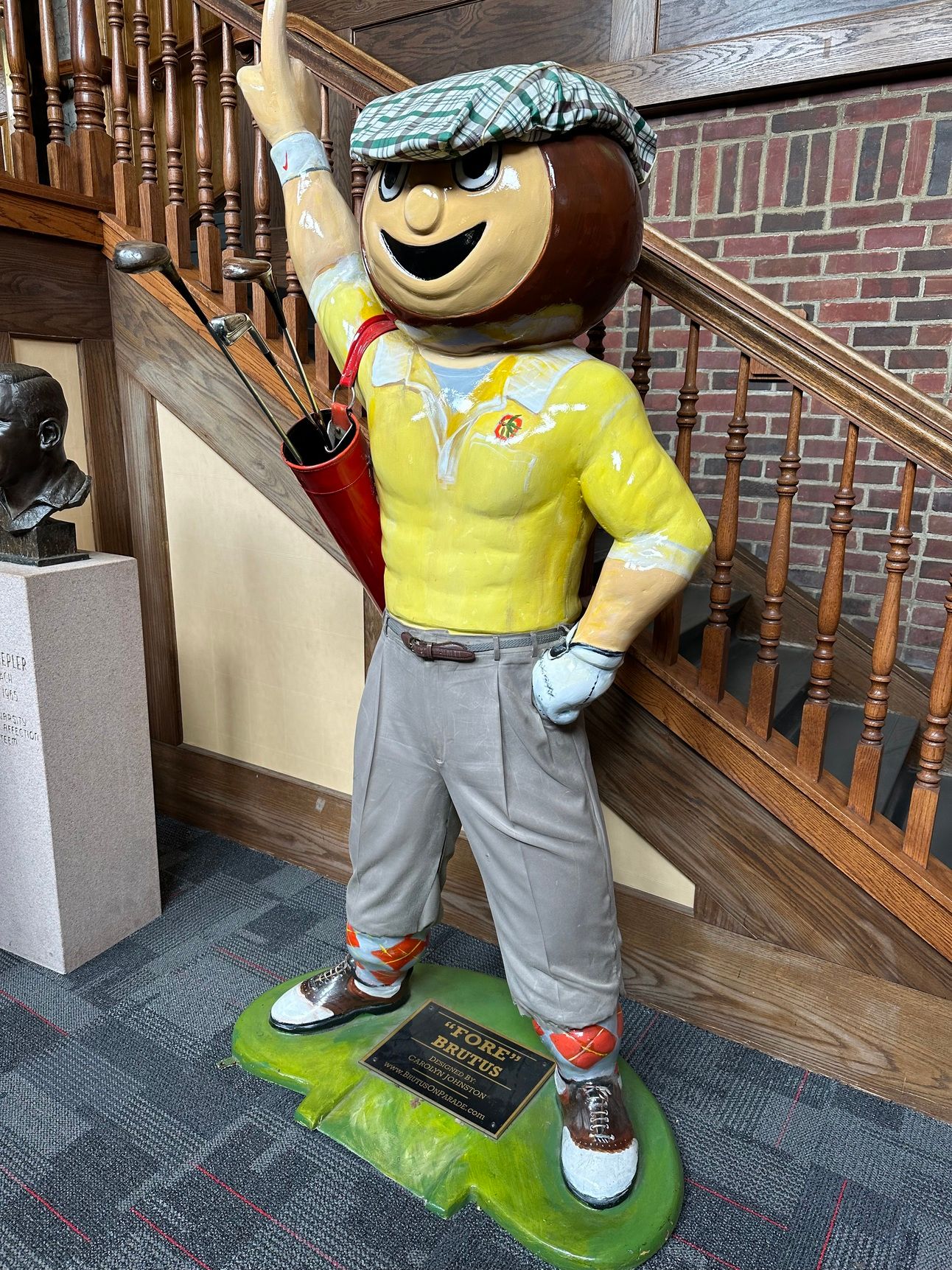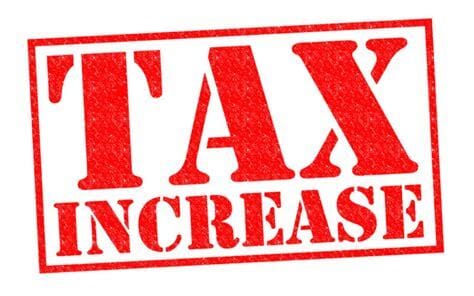- Retirement Examined
- Posts
- Retirement Examined - 5-Minute Weekly Round-Up
Retirement Examined - 5-Minute Weekly Round-Up
Special Announcement: Estate Planning Seminar - RSVP Now!

The weekly email that keeps you up to date on exciting Retirement topics in an enjoyable, entertaining way for free.

Special Announcement
Novus Financial Group has scheduled its first two seminars of 2024. The topic of these seminars is Estate Planning and our special guest speakers are John & Lorri Posani of the Posani Law Office (https://www.posanilawoffice.com). The dates of the seminars are April 2nd & 4th from 6:00 pm - 7:15pm and they will be held at:
OSU Golf Club’s Kepler Club House
(Heavy hor d’oeuvres will be provided)
Topics of these two Estate Planning Seminars include:
What estate document might be THE most important one to have
Learn about recently updated tax strategies that turn your taxable assets into tax-free assets (NOT a Roth strategy)
The estate documents you want if your child is college-bound
How to fortify your Estate Plan to combat the high-inflation economy
Will vs. Trust - differences and when you want one over the other
How to leverage your assets to make them work as hard as possible for you
Why documents are only 1/2 of the estate plan
Avoiding Probate - what it means and how to do it
How to begin the Estate Planning process
The quickest and easiest strategies that you can implement that will have a significant impact on your Estate and your Legacy
Email Eric Seyboldt to RSVP ([email protected])
Disclosure: These seminars are for educational purposes and do NOT involve the sale of any products or services. You will be given an opportunity to schedule a complimentary, one-on-one visit with any of our team members if you’d like to discuss personal, confidential concerns in a private setting, or would like to learn how you can implement the strategies that are discussed in the seminars.
Believe It or Not, More Tax Hikes Seem To Be On the Mind of Congress
by Eric Seyboldt

As respected individuals within our community enter or relish their golden years, it is crucial to keep abreast of policy adjustments that could shape our financial environment. The government's recent proposal to hike corporate taxes substantially — to 21% from 15% and to elevate the total rate to 28% from 21% — warrants detailed scrutiny. Let's delve into how these proposed changes could send ripples through our economy, with direct consequences for people in retirement.
Stunted Corporate Progress: At the heart of flourishing enterprises is their capacity to reinvest earnings. Elevated taxes carve into these earnings, curtailing the resources available for innovation, growth, and the creation of new roles and jobs. This domino effect could dull the economic dynamism, impacting job prospects and salary increments essential for the overall economy's well-being.
Global Competitiveness Setbacks: On the world stage, maintaining competitive tax rates is critical. The recommended increases might make our homegrown companies less attractive than their global rivals, potentially leading to a shift in investments, operations, and employment out of the country. Such movements would result in a shrinking domestic job market, affecting industries and communities across the country.
Stock Market Sensitivities: The health of our stock markets is intricately linked to the profits of corporations. A surge in corporate taxes might precipitate a decline in stock market values. A vast number of retirees and those on the verge of retirement depend on their investments for their post-work security. A downturn in the markets would diminish the worth of these investments, undermining the financial well-being and future earnings of retirees.
Surging Consumer Costs: To counterbalance elevated tax responsibilities, businesses react by hiking the prices of goods and services. This inflationary pressure disproportionately strikes those with static incomes, including numerous retirees. This decline in buying power will necessitate lifestyle changes, diminishing life quality for many in our circle.
Reduced Dividend Payouts: Companies grappling with increased taxes often respond by slashing dividends to preserve their fiscal health. For retirees who rely on dividend earnings to cover their living costs, this would translate into a substantial reduction in their income flow, compelling them to reevaluate and reduce their expenditures.
Considering these points, it becomes evident that the suggested tax reforms would cast a wide net of implications, affecting not only the broader economic framework but also closely shaving the lives of retirees and those nearing retirement. Our society merits a policy environment that promotes economic proliferation, stimulates job generation, and assures a secure and respectable retirement for everyone.
Client Q & A of the Week - Pay Off Your Auto Loan or Drive New Every Couple of Years?

Client: Mark, I’ve heard other radio pundits say that it’s better to pay off your auto loan and drive the car as long as the wheels are still turning. Is this a good idea? Does this still hold true in a day and age when repairs on used vehicles are so expensive?
Mark: Assuming you don’t get into a lemon, in an environment where the draw of new technologies and the latest gadgets increasingly influences consumer behavior, choosing to settle your car loan and keeping your car running can be a wise financial and economical move. Here are the essential factors that back up this decision:
Savings on Expenses: Clearing your car loan cuts out monthly payments, thus increasing your available cash. This relief to your finances grows over time as you steer clear of the extra expenses involved in leasing or financing newer vehicles, such as elevated insurance premiums and interest charges.
Value Retention: Cars lose their value quickly, with the most significant drop happening within the initial years. By fully owning your vehicle and using it for the longest time feasible, you ensure that you get the most out of your investment even past the period of highest depreciation. On the other hand, the habit of always moving on to new leases or purchases keeps you constantly facing the brunt of depreciation costs.
Lower Insurance Rates: Having full ownership of your vehicle allows you to have more control over your insurance choices. Freed from the mandate of leasing or financing companies, you're at liberty to choose an insurance plan that’s both suitable and economical, potentially saving you a notable amount each year.
Escape from Endless Payments: The cycle of perpetual leasing or financing new cars traps you in a relentless stream of debts and repayments. By owning your car outright, you exit this loop, thus achieving economic independence and stability, which then enables the redirection of funds into savings, investments, or other financial pursuits.
Altogether, the financial advantages of settling your car loan and extending your vehicle's lifespan include significant expense reductions, better management of depreciation, lower insurance costs, and above all, the priceless benefit of economic autonomy. Adopting this strategy not only delivers prompt financial relief but also promotes enduring financial well-being.
Please feel free to email Mark at [email protected] if you’d like to ask any questions or request information on retirement topics that are on your mind.

“In a moment of decision, the best thing you can do is the right thing to do, the next best thing is the wrong thing, and the worst thing you can do is nothing.”
REAL ASSETS, Invest Like the Ultra-Wealthy

www.bourbon.fund
Is the US Dollar going to have much value in the future? Does it have much value NOW?
If, like many Americans, you’re looking for ways to diversify and protect your retirement savings against economic and geopolitical uncertainty this year, we have some answers for you...
Whether we’re talking about the debt ceiling worries, high inflation, high interest rates, high government spending, dollar devaluation, or overall unpredictable markets, we’re truly in a “pick your poison” situation that our nation has never experienced before.
One defensive investment strategy gaining prominence is the conversion of part of your IRA or 401(k) into physical gold or barrels of Bourbon.
Valuation of Real Assets is influenced primarily by three factors: 1) the global demand of the Real Assets, 2) the long-term interest rates of currencies and 3) the comparative value of fiat money against tangible assets.
Owing to these factors, gold tends to prosper in times when either a lax monetary policy leads to inflationary pressures or during economic downturns. Bourbon tends to prosper in any economic condition. Therefore, Real Assets are more accurately seen as safeguards against extreme financial situations in addition to a means to diversify incrementally in stable times.
Allocating funds into the asset class known as “Real Assets” may be a strategy that you should consider.
Ask us how to Rollover a portion of Your IRA or 401k To A GOLD IRA (link below) or a BOURBON IRA (www.bourbon.fund/how-it-works/) and:
Safeguard your assets from the collapsing dollar
Incorporate the ‘REAL ASSET’ class into your portfolio like the ultra-wealthy
Hedge against the current high-inflation conditions
Protect your retirement assets against economic crises
Just get in touch. We make it easier than ever.
CONNECT WITH US
Feedback or Questions?
You’re invited to get in touch with us if you’d like to find out how the Novus Financial Group can help you on your journey to a happy, fulfilling life in Retirement.
We have a lot of great information, as well as podcasts from our radio show ‘The Financial Insider’, and tools on our website - www.novusfg.com.
Office: 614-943-2265
Feel Free To Forward Retirement Examined To A Friend and Have Them Subscribe By Clicking The Button Below:
Reach out if you’d like to advertise your business on Retirement Examined or would like to be a sponsor.
Investment advisory services are offered by duly registered individuals on behalf of CreativeOne Wealth, LLC a Registered Investment Adviser. CreativeOne Wealth, LLC and Novus Financial Group are unaffiliated entities.
The content we provide here isn’t financial advice and cannot be taken as such. Please speak to your financial advisor before making any investment decision. Also, note that every investment comes with its risks and drawbacks. Lastly, we would like to remind you that past results cannot guarantee future returns.
This website contains one affiliate link. When you click on the link and make a purchase, we may receive a commission at no additional cost to you. We only promote companies that we have personally used or researched and believe will add value to our readers.
